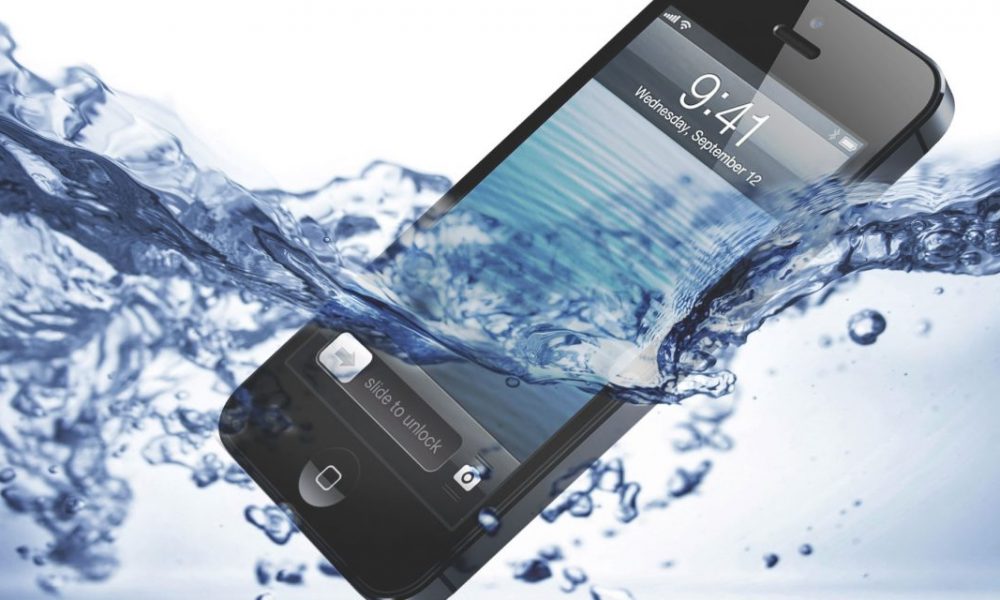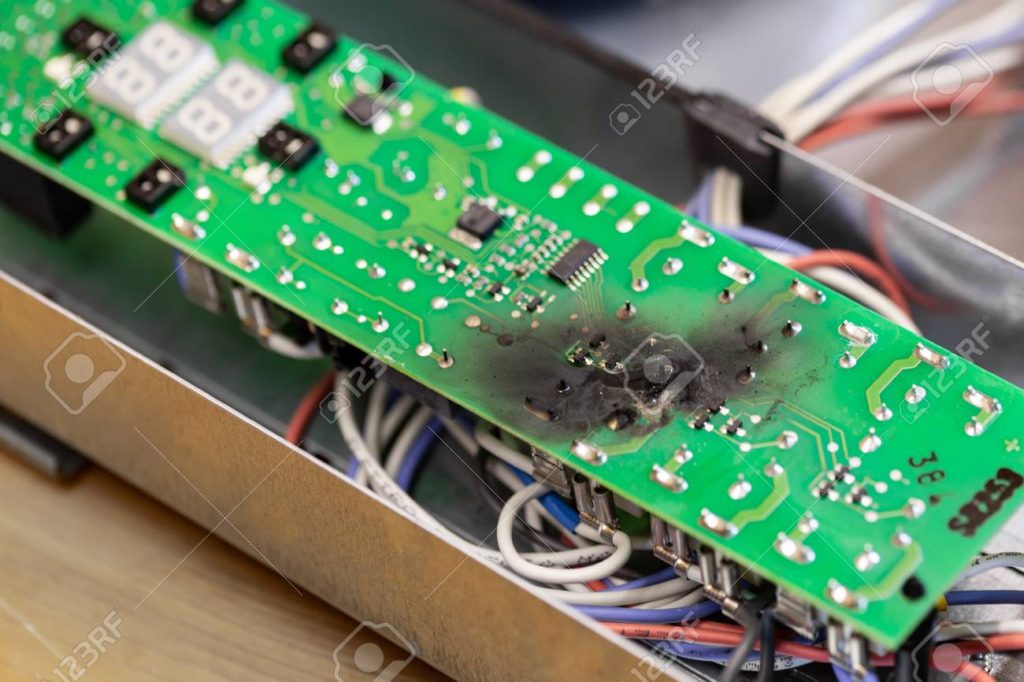But why is this so? Why don’t your gadgets mix with water? Why do they get damaged when they come in contact with water? And by the way, no electronic gadgets are safe, not even if they are marked “waterproof” or “water resistant”. This is because IP waterproof ratings only keep gadgets safe in water for a specific period of time and depth. Anything beyond the threshold duration and depth would damage your device. Now let’s get to it, shall we?
Why water damages electronic devices
Water, when in contact with electronics, damages them because it conducts electricity. And while water in its pure form (called Pure or Distilled Water) doesn’t conduct electricity nor damage gadgets, the (tap) water we use in our everyday life and activities isn’t pure and does, in fact, conduct electricity and will damage electronics. You can submerged any electronic device in pure water and it would not get damaged. This doesn’t, however, mean you should throw your phones into water, though. Because even if you get water free of impurities, they can become impure and contaminated with particles VERY QUICKLY. [Impure] Water can conduct electricity because they contain impurities, dirt, chemicals, and particles like salt, mineral etc., and it is these impurities that hands water the ability to damage your electronics. How? When ‘pure water’ is contaminated, the microscopic impurities dissolve in water and separate into electrically charged atoms know as IONS. These ions have the ability to form some sort of reaction that generates electricity and subsequently make a connection between two contrasting contact points within your phone. And if your phone is turned on at the point of entry into water, there’s the possibility of sending electricity (to places in your devices) where it’s not supposed to go. Now lets take a look at the numerous ways though which water damages your device.
How Water Damages Your Electronics
- Short Circuiting Short circuiting is the leading cause of water damage of electronic devices and appliances. As explained earlier, this (short-circuiting) happens when electric charges from impurities in water make way to places in your devices where electricity should reach. And usually, short-circuiting almost always happens when your phone is turned on the moment it came in contact with water.
- Corrosion Corrosion of components is another way water damages your electronics. And while the effect of this damage isn’t as immediate short-circuiting, it happens slowly and overtime. It could take days, weeks, or even months. Worse part: you may not know it’s happening. If you are lucky enough to have still are a fully functional electronic device that survived short-circuiting, everything isn’t fine just yet. While wet, impure water causes short-circuiting, the (tiny) particles that are left behind when the water has completely dried up are responsible for corrosion of your phone’s internal metal components and circuit boards. To prevent corrosion, quickly open up your device (if you possess the knowledge) and sufficiently expose to dry air. You can also place compatible components in a vacuum to fasten up the drying process.
- Damaged display Yes, your screen isn’t safe either. Obviously, gadget’s displays (particularly LCD) don’t have a friendly relationship with water. There’s a digitizer attached to the glass panel of LCD displays. On some devices, the digitizer is the glass covering on the LCD. If it comes in contact with water, the whole of the screen gets damaged and dies. The remedy to preventing a damaged screen when your device gets submerged in water is to hastily find means to dry the water out. Or if you have the skill, open up the device to allow the water dry out faster. You can also clean wet components with isopropyl alcohol because it displaces water and particles faster. Drying agents like dessicant packs also do the trick.
- Damages Hard Drive Platter Aside from causing short-circuiting, particles and chemicals in impure water can also cause physical damages to some internal components of your electronics and gadgets. This is because although impurities could be super microscopic, some are big enough to scratch your hard drive platters — scratches small enough to make data unreadable and ultimately damage your hard drive. In addition, water can also damage your electronics and gadgets indirectly through the battery. Doesn’t matter if your device uses a Lithium Polymer or Lithium Ion battery, when it comes in contact with water, it either damages or reduces the life span of the battery. With all the above? Do you now understand that water in its pure nature will cause next to no damage to your electronics? And that it is the impurities in water that ‘kill’ your gadgets when they are submerged in water? Have you ever had your phone, tablet, smartwatch, or any electronics damaged by water?





